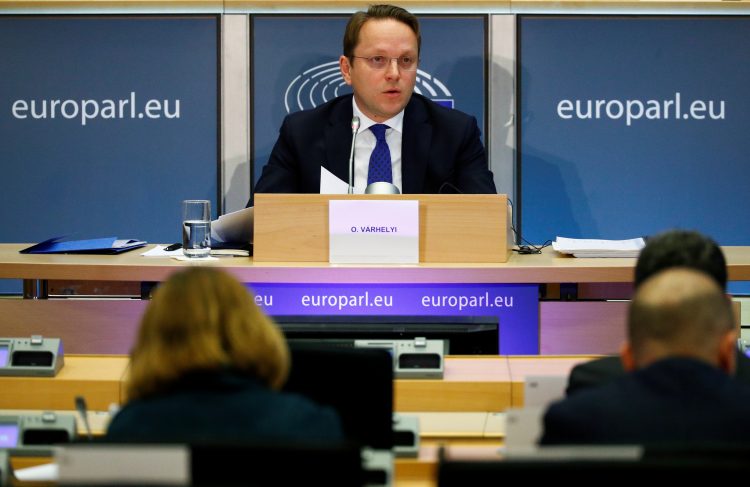
Hungarian MEP Katalin Cseh, published an open letter to European Commission President Ursula von der Leyen asking for an investigation against Oliver Varhely, the EU Enlargement Commissioner for his ties with Milorad Dodik, the BiH Serb Presidency member.
“With MEP colleagues, we call for an investigation into Commissioner Varhelyi’s alleged role in assisting Milorad Dodik’s separatist escalation in Bosnia-Herzegovina. The EU needs to stand firmly and credibly on the side of peace. People in BiH and beyond deserve clarity on this,” Cseh wrote on her Twitter account.
With MEP colleagues, we call for an investigation into Commissioner Varhelyi’s alleged role assisting Milorad Dodik’s separatist escalation in Bosnia-Herzegovina.
The EU needs to stand firmly and credibly on the side of peace. People in BiH and beyond deserve clarity on this. pic.twitter.com/Ihj0nXMfE6
— Katalin Cseh (@katka_cseh) January 12, 2022
The letter reads:
“Dear President von der Leyen,
Many in the European Parliament (and I am sure the same is true for the Commission as well) follow the issue of Republika Srpska (RS) intently. Peace within, and the territorial integrity of Bosnia and Herzegovina (BiH) is of crucial importance not only from a local, but also from a regional and indeed, European perspective.
This is why we are extremely alarmed by the apparent escalation of political tension within BiH, fuelled by Milorad Dodik, the Serbian member of the country’s tripartite presidency. If Mr Dodik’s endeavor to break up the country and establish RS’s independence by withdrawing from state institutions and setting up independent authorities on the territory of RS is successful, its ramifications will be felt far beyond the borders of BiH, with grave consequences for EU foreign policy and the enlargement process alike.
As a neutral party with considerable influence, the Commission has a key role in ensuring that the conclusions of the Dayton Agreement are respected on both sides and a peaceful coexistence of separate entities conducive to development and growth is established in BiH.
Not all EU member states share these goals, however. It is widely reported that the current Hungarian government is actively supporting Mr Dodik’s campaign to pursue his political strategy in dividing BiH, as evidenced by a recent EUR 100mn support from Hungary to RS, just before the upcoming Bosnian general elections.
Even more disturbingly, however, a leaked document signed by Johann Sattler, the Head of the Delegation of the European Union to Bosnia and Herzegovina suggests that EU Commissioner for Neighbourhood and Enlargement Oliver Varhelyi openly colluded with Milorad Dodik in potentially breaking up BiH. The report notes that Commissioner Varhelyi “agreed” with Mr Dodik regarding the date of a special session of RS’s National Assembly and that a 6-month moratorium to pass legislation on the unilateral withdrawal from state institutions would be announced.
Needless to say that Commission representatives cannot appear to appease separatist movements in this manner or act beyond their mandate contrary to official EU policy pertaining to the Western Balkan region. If the impartiality and neutrality of the Commission is called into question, the fragile geopolitical balance becomes immediately threatened.
In this context, we would like to ask whether the Commission considers Commissioner Varhelyi’s conduct was in line with official EU policy towards BiH? Can we expect a thorough internal inspection to determine whether his actions are compatible with his role as Commissioner for Neighbourhood and Enlargement? What is the Commission’s stance concerning the territorial integrity of BiH and how does the Commission plan to ensure that the conclusions of the Dayton Agreement – of which the EU is a signatory of – are not violated?”
The letter was signed by 30 europarliamentairians, among whom are Katalin Cseh, Attila Ara-Kovacs, Thijs Reuten, Thomas Waitz, Tineke Strik, Milan Brglez, Hilde Vautmans, Karen Melchior; Reinhard Butikofer, Petra Kammerevert, Javier Nar,; Klara Dobrev, Viola von Cramon-Taubadel, Klemen Groselj and others.
back in October last year, the portal politico.eu, referring to several unnamed officials of European institutions and the analysis of internal documents, accused the Hungarian diplomat, close to Prime Minister Viktor Orban, of bias and favouring Serbia.

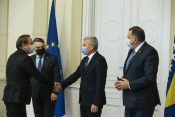

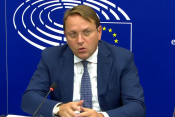
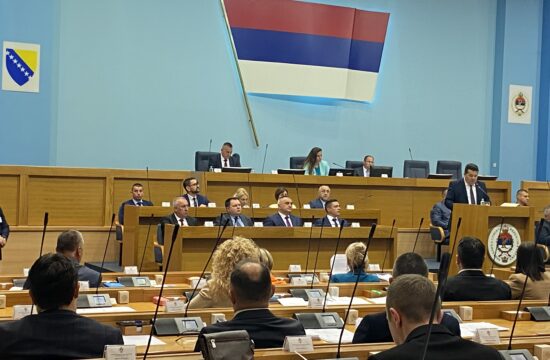

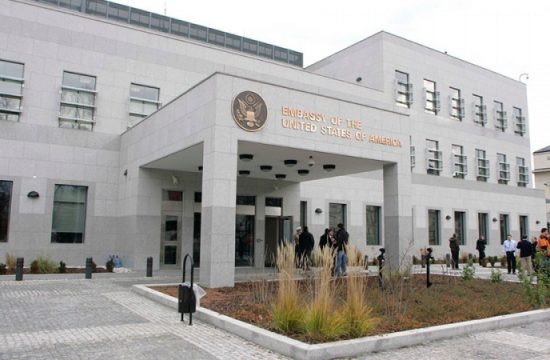
Kakvo je tvoje mišljenje o ovome?
Budi prvi koji će ostaviti komentar!